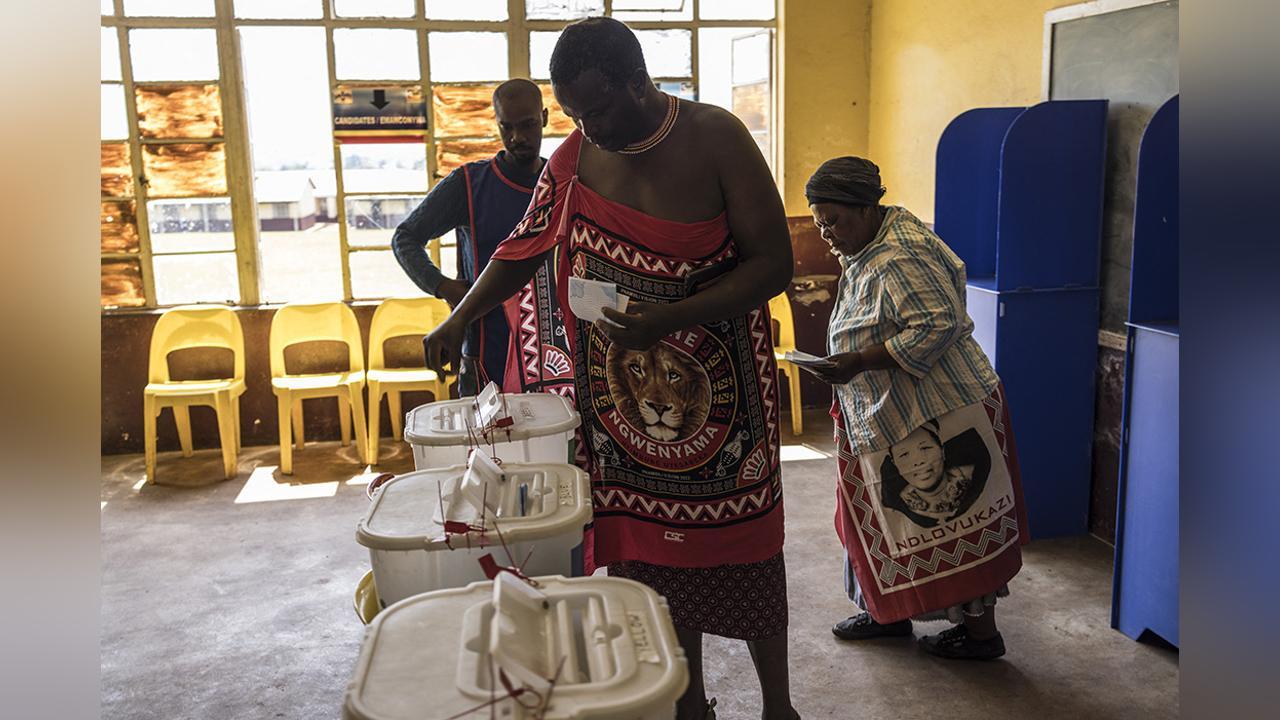Africa-Press – Eswatini. The ongoing elections in South Africa (SA) hold significant implications, not only for SA citizens, but also for Eswatini.
The seventh general elections in the Republic of South Africa are polled to be the most fiercely contested since its independence. On a national scale, polls predict that the African National Congress (ANC) might witness a decline in support; some even predict that it might get below the 50 per cent required to form a coalition government. The outcome of the elections will not only shape the economic policy direction for SA, but it will also shape a number of economic outcomes for the kingdom through the following channels.
Interdependence
Eswatini’s economy is intricately linked with that of SA, its largest trading partner and a major source of investment and infrastructure development. The outcomes of SA’s elections are, therefore, closely watched in Eswatini, as they have the potential to shape trade dynamics, investment flows, infrastructure projects and overall economic stability. SA serves as a crucial market for Eswatini’s exports, particularly in sectors such as manufacturing, agriculture and textiles. Any shifts in SA’s political leadership or policies, post-elections, could impact bilateral trade agreements, tariffs and cross-border regulations, affecting the competitiveness of Eswatini’s products in the South African market. Furthermore, Eswatini is a member of the South African Customs Union (SACU) and the Common Monetary Area (CMA). Any shifts in the political dispensation in SA might have an impact on the macroeconomic and monetary policy outlook for Eswatini. Also, Eswatini imports 70 per cent of her power from SA, and load-shedding is polled among the most important factors that voters in SA will consider in the ballot box.
Policy coordination, cooperation
Close cooperation and policy alignment between SA and Eswatini is vital for maximising the benefits of their economic relationship. The outcomes of the May 29 (today) elections in SA provide an opportunity for both countries to reassess their bilateral cooperation frameworks and enhance coordination on key economic issues. Strengthened collaboration in areas such as trade facilitation, infrastructure development and regional integration can mitigate potential negative impacts and unlock new opportunities for economic cooperation between the two countries.
The kingmakers
The impact of the elections will depend mostly on who eventually forms the coalitions. Polls pay particular focus on the following potential kingmakers; the Economic Freedom Fighters (EFF), Democratic Alliance (DA) and the new kid in the block, the Umkhonto Wesizwe (MK) party. We can assess the likely impact of the elections on the stance that each of these players have revealed. The DA and MK party seek to follow market-based solutions to handle the problems that SA faces, consequently, its market outlook would not be adversely affected if the ANC were to form a coalition with any of these parties. The EFF, on the other hand, has advocated for an insular economic policy aimed at improving the lives of South Africans, furthermore, and it advocates for the nationalisation of key industries. Essentially, an EFF government would result in policies that markets may not view as friendly. Consequently, we might be faced with a scenario of capital flight from SA and, as a result, Eswatini might feel an impact of the capital flight.
Democratic reforms
Furthermore, the EFF has always taken a hard-liner stance against Eswatini and the call for democratic reforms in the kingdom. A coalition government in which the EFF is an active member might result in an overall stronger stance against Eswatini and in calling for reforms. Evidence has shown that some of the tools the EFF has in its arsenal on the Eswatini story is the utilisation of SA’s economic might to influence change in Eswatini. This has been visible through border blockades aimed at crippling the economy of the kingdom and utilising those as a leverage point. These are likely to heighten should the EFF be in a power sharing agreement. Furthermore, other more direct levers such as the SACU revenue sharing agreement and the CMA arrangement may be utilised to influence reforms in Eswatini. As we know that the Eskom contract comes to term in 2025, this is yet another lever that could be utilised to force reforms in Eswatini. South Africa votes, however, Eswatini will be affected to a great extent by the outcome of the elections.
Writing on the wall
The polls predict an outcome that will forever change the course of SA’s politics and policy. Regardless of whether the ANC retains majority control, the writing on the wall remains clear, there will be changes made. If the ANC wishes to remain in power post this election, there have to be clear policies on load-shedding, reduce unemployment and improve access to services. Eswatini will be affected one way or the other by the elections and we need to craft a new policy footing and improve self-reliance as a country. The country needs to unlock new markets and new sources of growth, support and sustain local markets, support domestic industries to diversify the export destination pool. It is imperative that the country improves its energy sufficiency, electricity is pivotal for economic growth and cannot be left in the whims of external determinants.
Source: times
For More News And Analysis About Eswatini Follow Africa-Press







